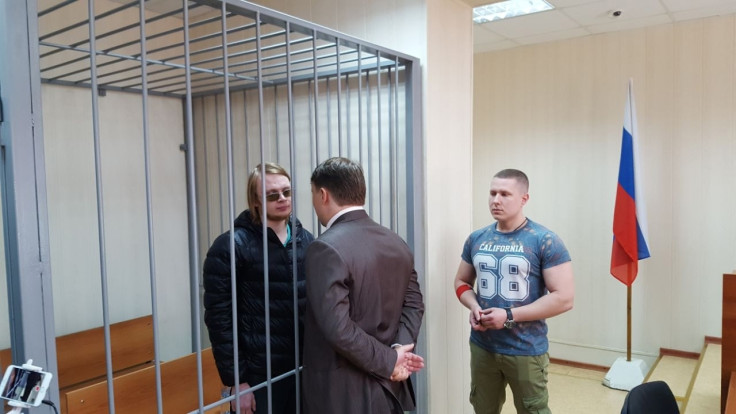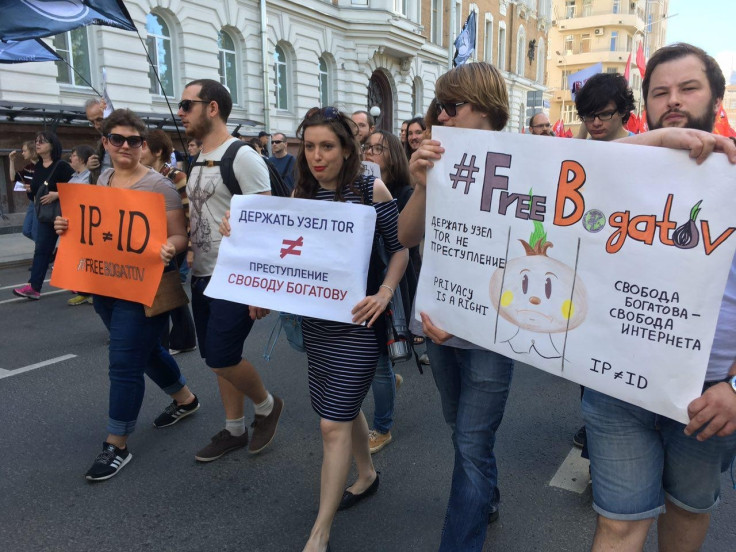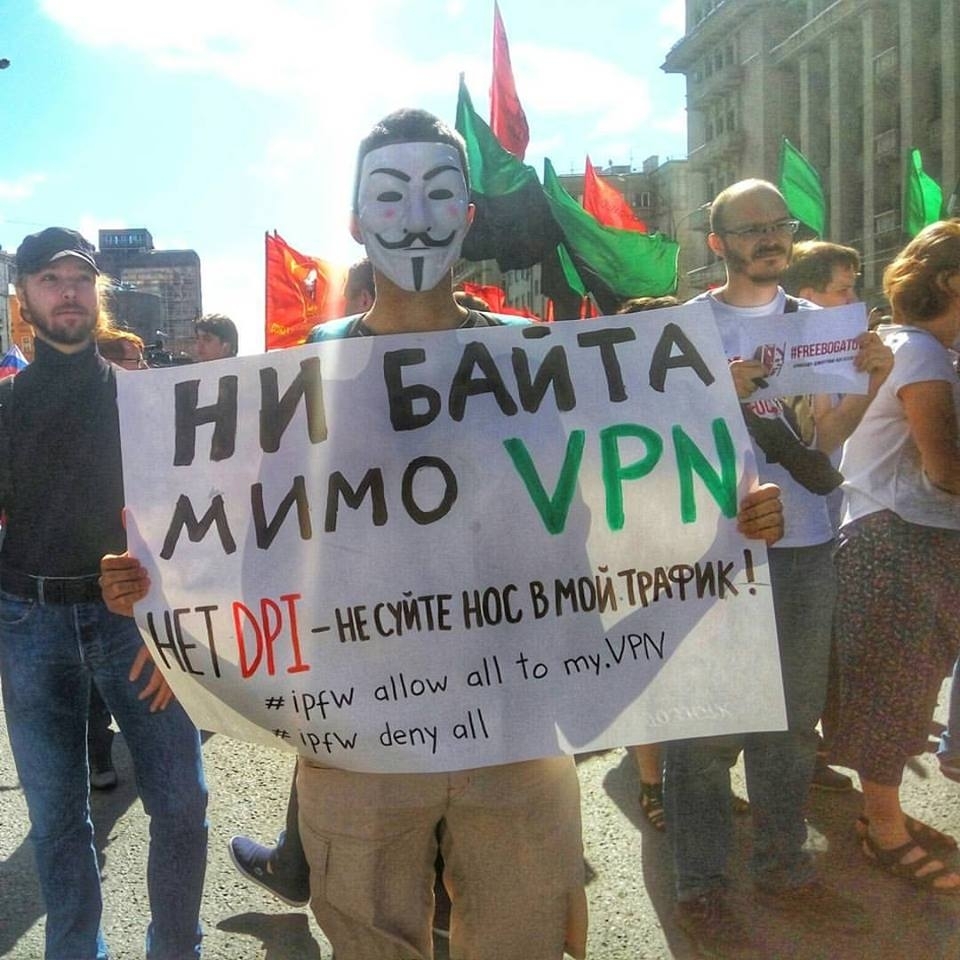#FreeBogatov: Russian Tor node operator released to house arrest after three-month detainment
Tor exit node operator Dmitry Bogatov, accused of inciting violence, has been released from jail.
Following three months of detainment, Russian Tor exit node operator Dmitry Bogatov has been released on house arrest.
During a hearing at Moscow's Presnensky Court on 24 July, Judge Yevgeny Naidyonov released Bogatov from detainment and placed him under house arrest for medical reasons, following a petition from his lawyers.
Bogatov is still under investigation and has been forbidden from using the internet or communicating with the press. However, he is allowed to leave his home once in every three days, as long as he follows all of the conditions of his house arrest, according to Russian news site Media Zone.
On 23 July, about 3,000 people marched in Moscow to protest against internet censorship and to campaign for Bogatov to be released, including 30 members of the Russian Pirate Party. The protesters were armed with banners and posters with slogans like "Running a Tor node is not a crime" and "Freedom of Botgatov is freedom of the internet".
Over 60 cities in Russia have now announced their support for Bogatov's case, in addition to multiple European countries, marked on this online map. It is believed that the decision to change his incarceration to house arrest is due to vocal campaigning from around the world.
"Dmitry's wife and family were really happy to see him and be able to talk to him with no barrier between them," Nadia Volovich, an activist in contact with Bogatov's family and lawyers, told IBTimes UK.
"They understand that it's not a victory, because he still faces a 19-year prison sentence. In Russia there is no justice in its proper meaning, it depends on the decision of those who are in power, but it is definitely not the judge."
A mistaken identity

Bogatov, 25, was arrested on 5 April for allegedly posting comments to online forums in Russia inciting people to go to the Red Square to riot.
Apart from being a mathematics teacher for graduate and high school students who also develops free software, Bogatov is a staunch privacy activist. To that end, he had been operating an exit node for the Tor anonymity network from his home in Moscow.
The Tor anonymity network (named after The Onion Router project) consists of software that shields and redirects internet traffic through a worldwide network of relays.
The network is run by volunteers who set up their computers as Tor exit nodes. Anyone can use the network, whether they are privacy-conscious or up to nefarious activities. However, the IP address the website you post on sees is the IP address of whichever exit node your web traffic came out of.
This has led to multiple instances around the world where law enforcement agencies try to raid the homes of Tor operators, accusing them of accessing child pornography or being involved in Dark Web drug dealing, when they are just operating the exit node.
There is no news on when Bogatov will next be due in court, as computer experts are still trying to ascertain whether he was the author of several posts on the forum sysadmin.ru. The report from the computer experts was meant to be due by the end of June, but failed to materialise.
"There's hope they just don't understand"

"They don't have any evidence, the only evidence they have is the IP address. What is cruel about this is that presumption of innocence doesn't work. They don't have any evidence to prove that Dmitry is the author of the posts but still they kept him in jail for three months," said Volovich, a graduate of Moscow State University, where a large movement is forming. It was there Bogatov himself studied before becoming a mathematics teacher.
"There's now hope that maybe they just don't understand how Tor works in the justice system, but we have tried to explain it to them so many times. So they might treat this case as making a public example to show why you shouldn't use the Tor network."
Russia has always been against use of the Tor network and virtual private networks (VPNs) that enable citizens to anonymise their web traffic and avoid detection from the authorities. On Friday 21 July, the State Duma (Russian parliament) unanimously passed a bill that requires internet service providers to block all websites that offer VPN services.
The bill will still need to be approved by the upper chamber of parliament and signed off by President Vladimir Putin before it comes into effect.




© Copyright IBTimes 2025. All rights reserved.






















